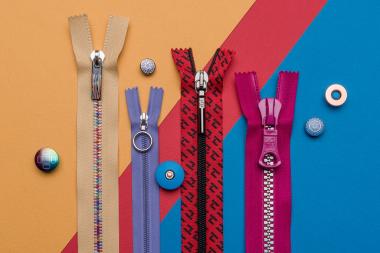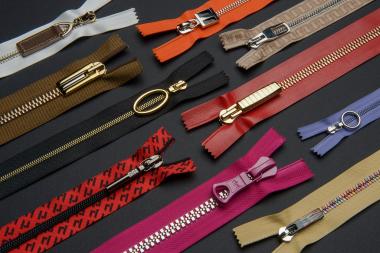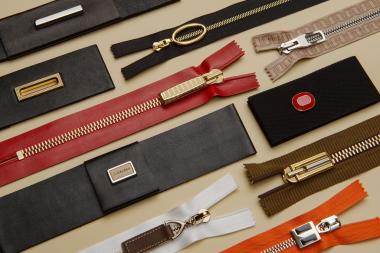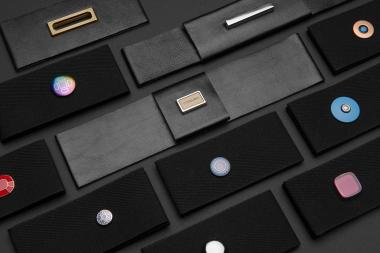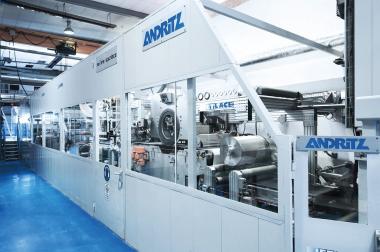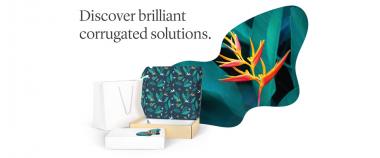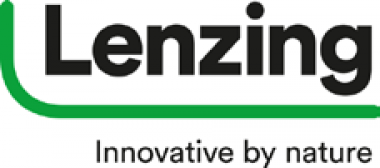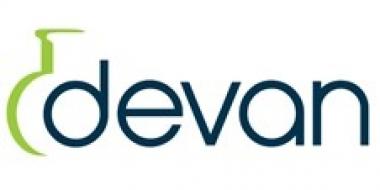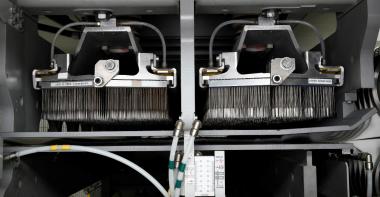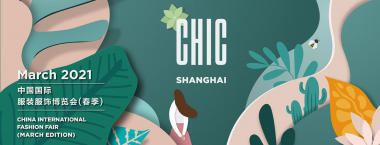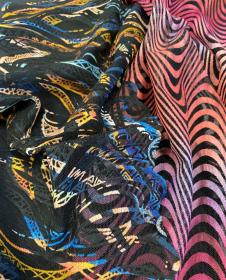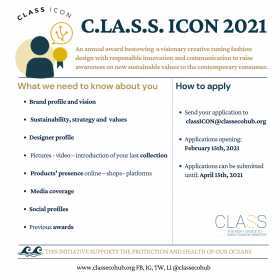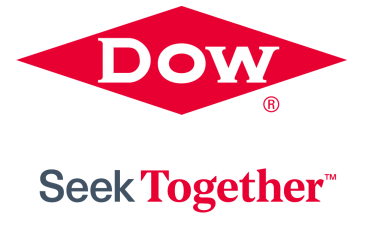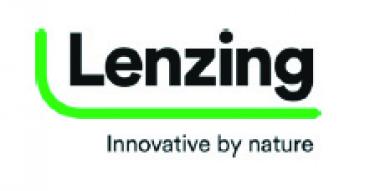Riri: Post-pandemic emotions
- Riri’s SS 2022 collection explores the mind of the future.
- Bright colors, vintage themes as well as timeless designs and attention to detail, combined with concepts that highlight history and processes.
Riri Group’s gaze looks to the future once more, offering a line of accessories where creativity meets cutting-edge technology. This is the scenario spawning the new SS 2022 collection; a range of innovative proposals each representing a different emotional response to the pandemic, an attempt to interpret the emotions, needs and desires of consumers in the coming years.
The Italian-Swiss group, that for almost a century has committed to creating zips and buttons for the world’s most important fashion brands, doubles down on its forward-looking vision. The result is SS 2022 collection, featuring three different aspirational paths to read into the emerging feelings of the “new normal” that is our time and that may characterize the near future.
REJOICE
Inspired by sensations of euphoria and breaking free from melancholy through evasion and exuberance, Rejoice is the line that sees in positivity and joy of re-living the answer to the months of pandemic and negativity. The optimism that is to come takes the form of a creative and extrovert style, even when it comes to accessories. The inspiration, a triumph of bright colors and timeless styles, comes straight from the streets of Boca, one of Buenos Aires’ most popular neighborhoods thanks to its combination of colors and creative scene. Thus, the Eloxal rio zip is presented once again: with its aluminum chain and colored teeth, matched with a multi-color effect puller. In the range, we can also find the Nylon zip, featuring changing colors matched with buttons that echo their color variations, or the Filmetal 14 zip, big and with eye-catching writings, embossed on the tape.
REBIRTH
Going back to the future, in a more respectful and responsible way, through a rebirth that comes to be thanks to a closer relationship with nature. In this line history and processes through which the product is made are pivotal to tell a new way to approach the world. The range comprises zips and buttons developed with natural material and processed manually. A return to the basics as well as the constant research to reduce resources use respecting the planet are foundation of this line. Part of the Rebirth line are the copper jeans buttons, with a special water-based paint finishing, transparent and protective, or the hemp-derived bio-plastic eyelets, as well as the galalite buttons, a particular bio-degradable plastic, derived from processed milk proteins. A major innovation are our tapes entirely made of recycled polyester, evidence of the commitment by Riri Group to reuse resources.
TIMELESS
Timeless elegance, essential luxury mixed with the highest quality standards for top-of-therange products. Design, materials and colors featuring in this line break away from seasonal trends to become timeless must-haves, essential yet elegant. Every piece is cared for in every detail, created specifically to leave a lasting mark. Buttons, chains and pullers are either made of gold and silver, or they feature the clean and elegant tone of stainless steel. Among the zips, stand out Metal and Simmetrical with luxury finishings, whilst tapes are made with refined materials, such as leather and satin. Essential yet researched, this range comes with square and oval cuts, with geometry being functional and complementary to a timeless elegance.
Menabò Group


